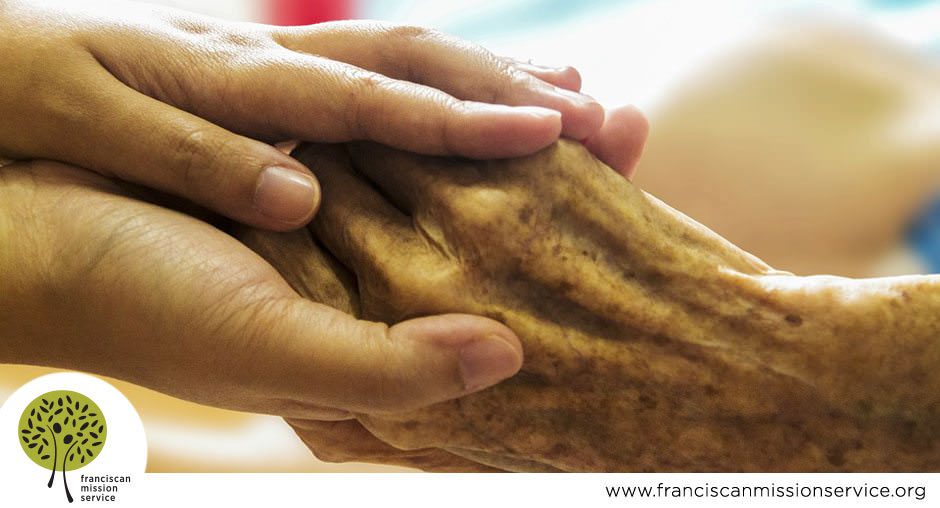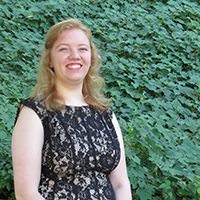Give the Gift of Presence on World Alzheimer’s Day and Every Day

Editor’s note: Missioner Anna Klonowski reflects on her personal connections to people with Alzheimer’s on World Alzheimer’s Day.
In 2010, I was on the brink of newfound freedom, sitting in the backseat of a Driver’s Ed car waiting for my turn to cruise (or rather, slowly and nervously jolt) down Main Street. My friend was the current nervous driver, and as she waited for traffic to clear and make a left turn, a wild driver on the opposite side of the road ran the yellow-turning-red light at an alarming speed. Our instructor slammed on his brake, as did my friend in the driver’s seat, and for what seemed like the millionth time that day, he lectured us about the importance of defensive driving—it’s a dangerous world we live in.
We continued normally with the rest of our drive, but I spent the rest of the day thinking about that incident, because I knew who that reckless driver was—it was my grandma. When I got home that night, I told my dad about what had happened. Just a short time later, my grandma was diagnosed with Alzheimer’s.
The connection between speeding through a stoplight and having Alzheimer’s may seem tenuous, but according to the Alzheimer’s Association, one of the ten early signs and symptoms of Alzheimer’s is decreased or poor judgement. That incident, along with my grandma’s memory loss and confusion (two other early signs), led to the diagnosis.
Visiting the residents of Hogar San José, a nursing home here in Cochabamba, brings me back to moments with my grandma during the years she had Alzheimer’s. I’ve made friends with several residents who have memory problems, some more severe than others. One friend, Gloria, talks of nothing but a few subjects she remembers—one of which being her faith, and another being her mistrust of the home’s staff and other residents. Having unfounded suspicions is a symptom of a more advanced case of Alzheimer’s or dementia. The staff and residents are not stealing from her or treating her poorly, but that is the frightening reality she lives in her own mind.
My grandma received the best care we could give her, first in her own home, where my grandpa looked after her, and then in the memory wing of a nursing home when he could no longer care for her. The wing was small and calm, had an alarm on the door so residents couldn’t easily wander, and the staff were friendly and caring. Grandma had visitors constantly, especially from my dad, who was there on his lunch breaks daily.
Here in Cochabamba, Gloria’s care looks different. Hogar San José is a very nice facility, but it is full to the brim with residents with a variety of needs and a small professional staff to care for them. It is not a home equipped to care specifically for people with memory loss. Gloria spends most of her time in her own room because a staff member cannot be with her constantly, and when she wanders she becomes afraid and confused. In the time I’ve known her, she hasn’t had visitors, and she doesn’t speak of family members.
I’m grateful to be able to visit her. I can’t care for her as a trained medical professional, but I can meet with her as a friend and help to take her mind off her anxieties. She doesn’t often remember who I am or that she’s met me before. But in the moments that we are reading recipes in the newspaper or looking at colorful photos, she smiles, releases some of her tension and forgets that she is supposed to be afraid.
In yet another way, Gloria reminds me of why I chose to go on mission with Franciscan Mission Service. Practicing a ministry of presence may sound simple, but its impact in my own life and in the lives of those I have met, like Gloria, has been tremendous and long lasting.
Reflection question: Is there an elderly family member or neighbor to whom you can bring some ministry of presence?
Tagged in:

